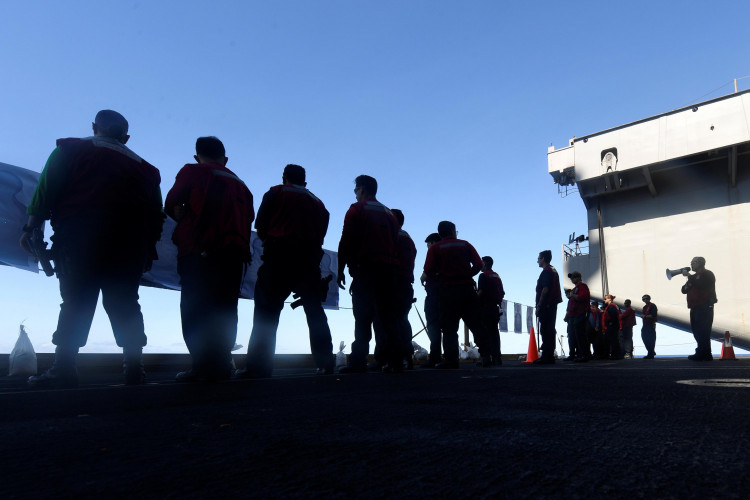All four countries of the anti-China alliance called "Quad" have launched their largest naval warfare exercise in the Indo-Pacific.
Warships of the U.S., India, Japan and Australia are gathered at the Bay of Bengal for the 24th edition of the annual "Exercise Malabar." It is the first time in a decade that warships from all four Quadrilateral Security Dialogue countries will conduct games.
Exercise Malabar practices diverse warfighting drills, ranging from fleet maneuvers, anti-ship, anti-submarine warfare and aircraft carrier operations.
"Malabar provides an opportunity for like-minded navies, sharing a common vision of a more stable, open and prosperous Indo-Pacific, to operate and train alongside one another," said Commander Ryan Easterday, commanding officer of the USS John McCain - representing the U.S. Navy.
Easterday said a collaborative approach toward regional security and stability is important "now more than ever, to deter all who challenge a free and open Indo-Pacific."
India's Ministry of Defense said Malabar will showcase coordination between friendly navies "based on their shared values and commitment to an open, inclusive Indo-Pacific and a rules-based international order."
Representing the India Navy is the Rajput-class destroyer Ranvijay, the Shivalik-class frigate Shivalik, the Deepak-class tanker Shakti and the Sindhuraj, a Sindhughosh-class submarine.
Flying the flag of the Japan Maritime Self-Defense Force is the Takanami-class destroyer Onami. The Royal Australian Navy is represented by the Anzac-class frigate Ballarat.
An initiative launched by former Japan Prime Minister Shinzo Abe, Quad aims to establish an "Asian arc of democracy." This will ultimately include countries in Central Asia, Mongolia, South Korea, Southeast Asia and "virtually all the countries on China's periphery.
U.S. Indo-Pacific Command's Admiral Phil Davidson described Quad as a military, diplomatic and economic hedge against China.
"What those four countries can bring to bear in diplomacy, in economic power, in the sharing of values that underline all the free and open Indo-Pacific visions that each nation has put forward, which are well overlapping, as I mentioned earlier, that's a great convergence. That'll actually be the most powerful aspect of it," said Davidson.






